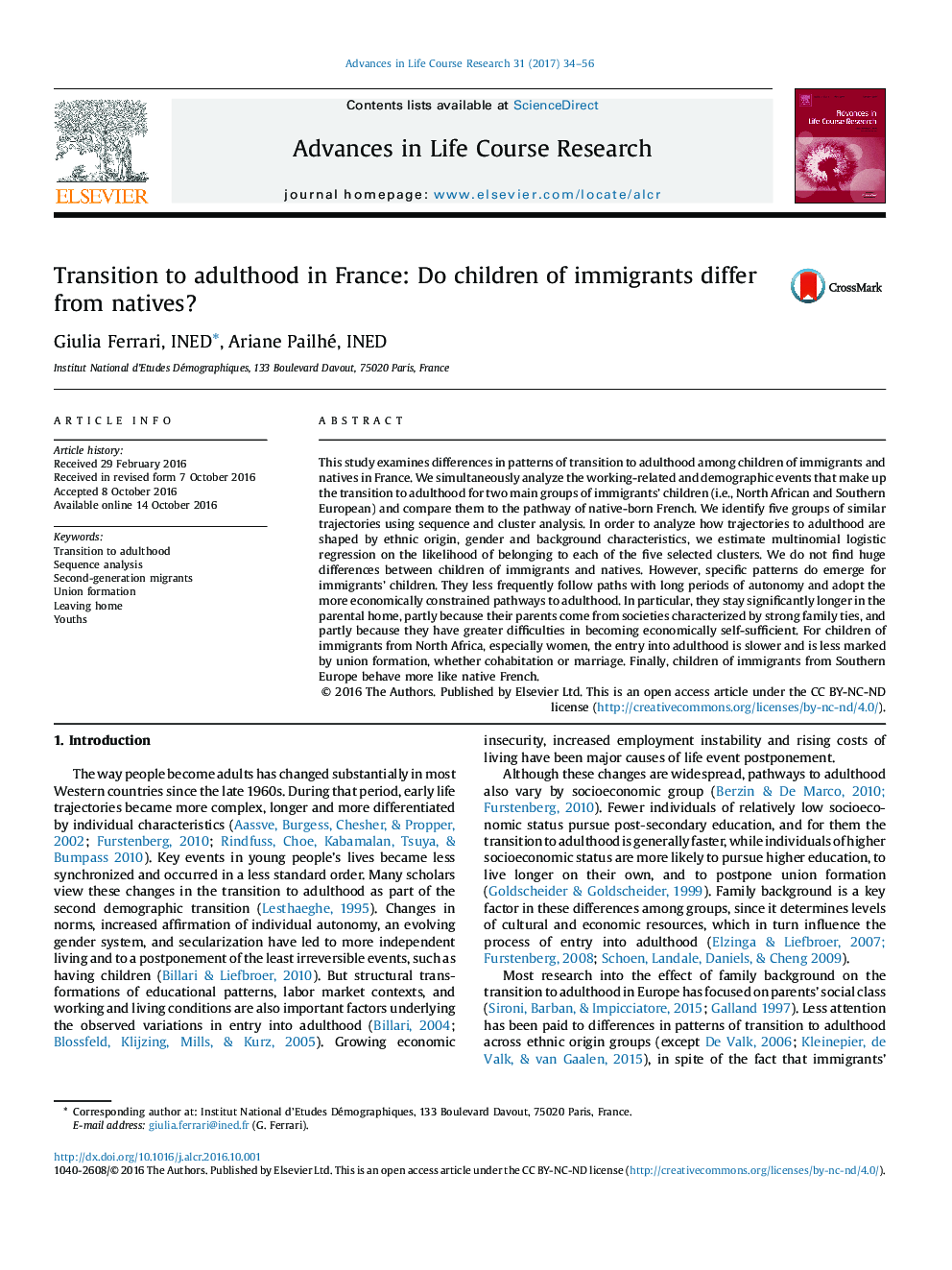| Article ID | Journal | Published Year | Pages | File Type |
|---|---|---|---|---|
| 4929531 | Advances in Life Course Research | 2017 | 23 Pages |
This study examines differences in patterns of transition to adulthood among children of immigrants and natives in France. We simultaneously analyze the working-related and demographic events that make up the transition to adulthood for two main groups of immigrants' children (i.e., North African and Southern European) and compare them to the pathway of native-born French. We identify five groups of similar trajectories using sequence and cluster analysis. In order to analyze how trajectories to adulthood are shaped by ethnic origin, gender and background characteristics, we estimate multinomial logistic regression on the likelihood of belonging to each of the five selected clusters. We do not find huge differences between children of immigrants and natives. However, specific patterns do emerge for immigrants' children. They less frequently follow paths with long periods of autonomy and adopt the more economically constrained pathways to adulthood. In particular, they stay significantly longer in the parental home, partly because their parents come from societies characterized by strong family ties, and partly because they have greater difficulties in becoming economically self-sufficient. For children of immigrants from North Africa, especially women, the entry into adulthood is slower and is less marked by union formation, whether cohabitation or marriage. Finally, children of immigrants from Southern Europe behave more like native French.
